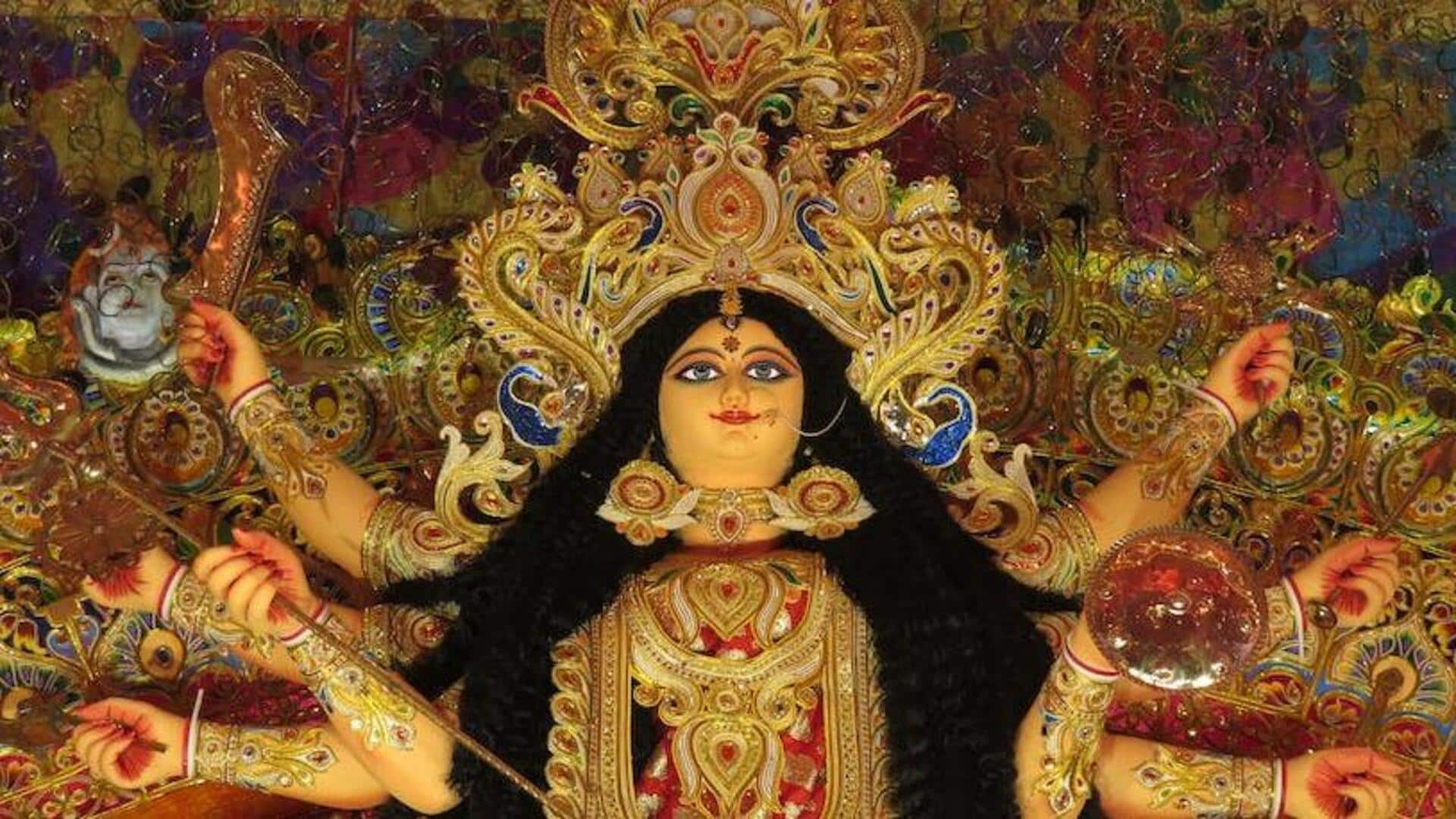
Significance of Mahalaya: Prelude to Durga Puja
What's the story
Mahalaya, an auspicious day according to the Hindu calendar, is widely observed throughout the Indian subcontinent, particularly in West Bengal and Bangladesh. Mahalaya is observed on the new moon of the month of Ashwin, this year it's today. Navratri begins a day after Mahalaya. The much-anticipated festival of Durga Puja, which celebrates the victory of good over evil, officially begins today.
History
Mythological significance
Mythology holds that Mahisasura was an asura or a demon whom neither devatas nor humans could defeat. Therefore, Brahma, Vishnu, and Maheshwar created Maa Durga to accomplish the task. The battle between Goddess Durga and Mahisasura lasted for approximately nine days. On the tenth day, Goddess Durga defeated the demon, marking the beginning of Navratri and Durga Puja.
Homecoming
Festival of homecoming
Mahalaya is made up of the Sanskrit words "Maha" and "Alaya," which combined denote the "Great Abode" or the "Home of the Goddess." Goddess Durga, who is revered as the pinnacle of femininity and the ultimate source of power, arrives on Mahalaya Day. It is the festival of homecoming as the Goddess travels to Earth to visit her devotees.
Celebration
How it is celebrated
Mahalaya is a time for spiritual reflection, paying homage to the Goddess, and enjoying cultural and culinary delights with loved ones. Mahalaya's most popular tradition is the recitation of the hymn Mahishasura Mardini, from the Devi Mahatmya. This is considered an auspicious beginning to the day. People offer prayers, take a dip in the Ganges, and participate in events like Durga Puja pandal inaugurations.
Other significance
Why is the day significant?
For the Bengali population in some regions of India, this day is significant because it marks the conclusion of Pitru Paksha Shraddha and the start of Devi Paksha. The time during Pitru Paksha is designated for paying respects to and praying to one's ancestors. The devotees honor their ancestors on this day by performing a tarpan or shraddha.